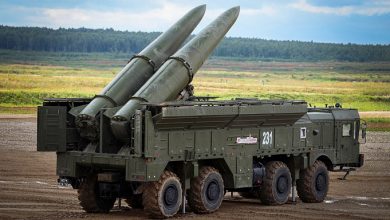The New Military Wave in Africa: Could It Turn Into a Tide?

Even in Africa, waves of three or more military coups d’état taking place in a single year seemed to belong to the past. Army takeovers had gradually gone out of fashion in recent decades, in line with trends that had seen this practice being largely demised across the world.
Yet, coups made a strong comeback in 2021, with a string of four taking place in just over six months in Sudan, Mali, Chad, and Guinea. As if to make the point stronger, this year’s coups in Sudan and Mali came in the wake of previous military power grabs in 2019 and 2020, respectively, bringing the total to six in the space of no more than three years.
The return of military coups once again exposed the widespread feebleness of states and political regimes across much of the region. Three of the countries involved are similarly poor and long-troubled Sahelian states that stretch across north and sub-Saharan Africa. Political institutions are not any stronger in Guinea. All four had already proved coup-prone countries, having now experienced a staggering cumulative total of 16 military takeovers since their independence. However, Africa’s recent military interventions were quite different from one another, both in the way they occurred and in the implications they carried.
In a historic development in Sudan, long-serving dictator Omar al-Bashir had been toppled in early 2019, as the army took side with demonstrators who for months had gone to the streets of major cities and towns against rising living costs. Khartoum’s unexpected ‘revolution’ saw military coup-makers soon pressed to negotiate with protesters and opposition groups, notably with the newly formed Forces for Freedom and Change coalition and the Sudanese Professionals Association. A deal was ultimately signed for a three-year transition during which soldiers and civilians would share power in a Sovereignty Council, before elections would be held in 2023, a deadline later postponed to 2024. Yet the entire roadmap appeared to be abandoned as the military once again seized power, this time getting rid of the country’s civilian prime minister and dissolving government, in late October 2021, just prior to the set date for handing over the chairmanship of the transitional council to civilians. In the latest twist of events, however, a new round of street protests, alongside external pressures, forced military officers to partly backtrack, after less than a month, before formally re-instating the ousted prime minister. But the compromise deal was deemed a betrayal by large parts of the pro-democracy opposition, most of which had by now parted ways with the once-trusted prime minister. The Sudanese scenario remains most fluid and uncertain.
Only a few months prior to Khartoum’s latest army takeover, neighbouring Chad’s strongman of thirty-one years, Idriss Déby Itno, had been unpredictably killed on the frontline by armed insurgents of the little-known Front for Change and Concord in Chad (FACT), originating from the far north of the country and likely armed by Libyan warlord Khalīfa Haftar. A bloodless coup swiftly followed, with the unconstitutional installation of a Transitional Military Council, chaired by the deceased president’s son, Mahamat Déby Itno, who dissolved the government and the legislature and proclaimed an 18-month transition period in view of new elections that will most likely confirm the status quo.
In between Chad’s and Sudan’s, Mali suffered its third coup in less than a decade, the second in two years. This time around, the army takeover was not sparked by street demonstrations, as in 2020, but – somewhat similar to what happened in Sudan – by a political tussle, as civilian President Bah Ndaw’s reshuffle of the transitional cabinet appeared to reduce the role of key military figures. Ndaw’s manoeuvre backfired as Colonel Assimi Goïta, the Vice President and the coup’s ringleader, made clear where political power lays in Bamako, disrupting the planned roadmap for a return to civilian rule. This occurred at a critical time for Mali, a previously ‘democratic’ country turned into the core of the jihadist instability that has beset Central Sahel since 2012. Thus, both the Sudanese and the Malian army had originally intervened ‘in support’ of civilian protesters, but some afterthoughts led soldiers to capture full power once their political and economic role appeared to be threatened.
Meanwhile, the military had also gained power in Guinea, not a Sahelian state but one that had also already contributed to West Africa’s well-established tradition of military takeovers. In Conakry, protesters had taken to the streets since 2019, first to resist President Alpha Condé’s constitutional changes allowing him a third mandate, and then to oppose his success in the 2020 election. Condé had been Guinea’s first democratically elected President, back in 2010, but harsh repression was his main response to popular demonstrations. The military, while characteristically clai





